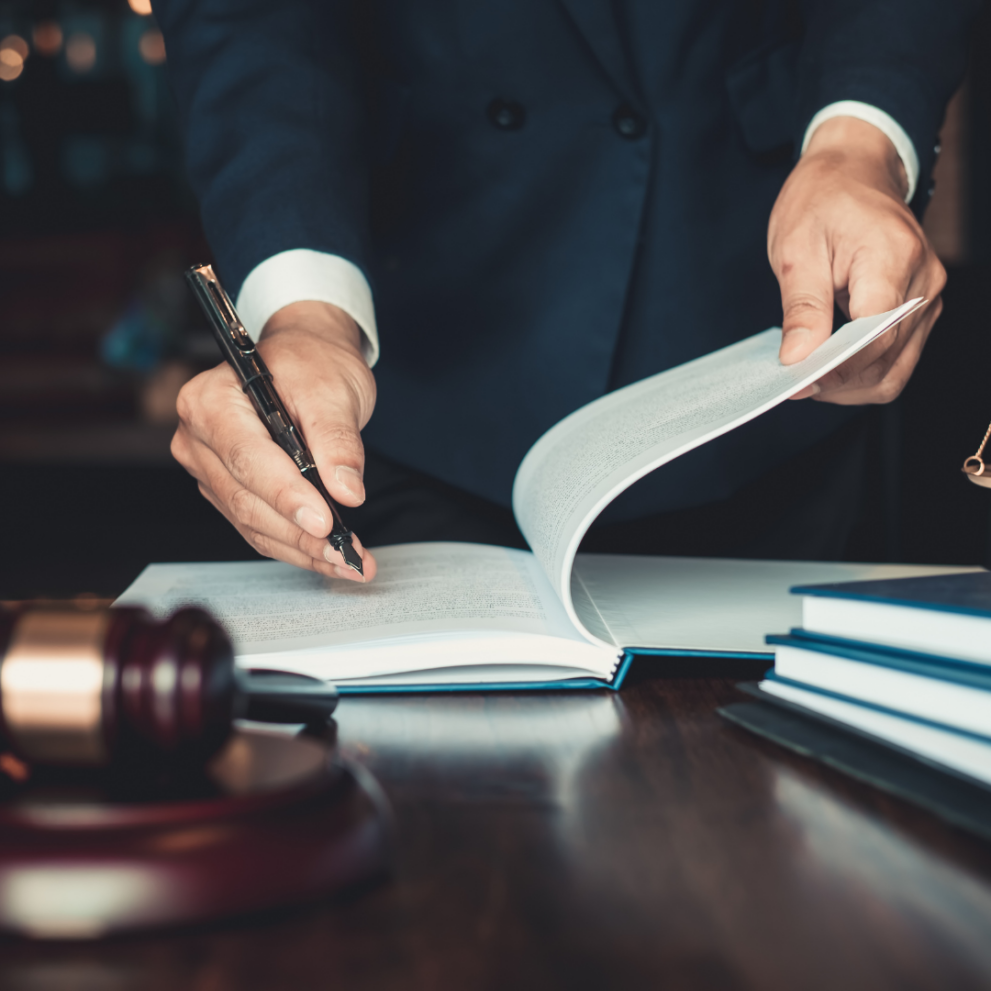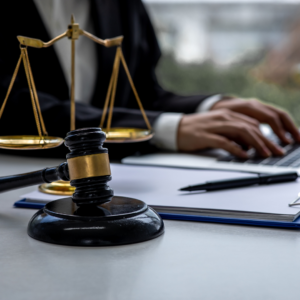
Buying or selling property is one of the most significant financial decisions a person can make, and it involves a complex web of legal and financial considerations. Whether it’s a residential home, commercial real estate, or a piece of land, property transactions can quickly become overwhelming. In Waynesville, NC, where local real estate markets have their own nuances, working with a real estate attorney is not only smart but often essential. These legal experts ensure that every aspect of your transaction is handled correctly, helping to protect your investment from unforeseen complications.
In this blog, we’ll explore the critical role a real estate attorney plays in property transactions, the potential challenges of buying and selling property, and how having the right legal professional by your side can safeguard your interests throughout the process.
The Importance of a Real Estate Attorney in Property Transactions
A real estate attorney specializes in handling the legalities surrounding property transactions. From drafting and reviewing contracts to managing the closing process, their expertise helps streamline what can otherwise be a daunting experience. Here are some key areas where real estate attorneys in Waynesville, NC can provide invaluable support:
1. Expert Contract Review and Negotiation
One of the most important aspects of any property transaction is the contract. These legal agreements set the terms and conditions of the sale or purchase, and even minor oversights can have significant consequences down the line. A real estate attorney will carefully review the contract to ensure that your rights and interests are protected.
In Waynesville, NC, the property market has its own unique characteristics, including zoning regulations, environmental considerations, and land use restrictions that could affect your transaction. An experienced local attorney can identify these nuances and ensure that they are accounted for in the contract. They can also negotiate terms on your behalf, making sure the deal is as favorable as possible for you.
2. Title Searches and Resolving Title Issues
Before any property transaction can be finalized, a title search must be conducted to verify the seller’s legal ownership of the property and to identify any encumbrances, such as liens or easements, that might affect your rights as a buyer. In Waynesville, NC, older properties or rural land parcels may have complicated title histories, and these can lead to unexpected problems if not addressed.
A real estate attorney will conduct a thorough title search to uncover any potential issues. If problems are found, they can work to resolve them, either by negotiating with third parties or by taking legal action. This step is crucial to ensuring that you obtain clear ownership of the property without any hidden liabilities.
3. Handling the Closing Process
The closing process is the final step in a property transaction, but it’s often the most complex. During closing, the final contract is signed, and ownership of the property is officially transferred. It’s also when funds are exchanged, and all outstanding issues, such as taxes and insurance, are settled.
A real estate attorney will oversee the closing process, ensuring that all documents are properly prepared and executed. They will also ensure that all financial matters are correctly handled, and that you receive a clear title to the property. In Waynesville, NC, where real estate regulations and tax laws may vary depending on the property type and location, having a lawyer guide you through closing can prevent costly mistakes.
4. Local Knowledge and Expertise
Every region has its own specific regulations and customs when it comes to real estate transactions, and Waynesville, NC is no exception. Local laws governing zoning, property taxes, environmental regulations, and more can significantly impact your transaction. A real estate attorney with experience in the Waynesville market will be familiar with these regulations and can provide valuable guidance.
For instance, rural properties in Waynesville may come with additional considerations such as water rights, easements, or even issues related to agricultural or conservation restrictions. Without a local attorney, these unique issues might go unnoticed, leading to complications after the sale. A Waynesville-based real estate attorney will have a deep understanding of the local market and be able to navigate these challenges efficiently.
5. Resolving Disputes and Legal Issues
Sometimes, disputes arise during the course of a real estate transaction. These can range from disagreements over the terms of the sale to conflicts about property boundaries, easements, or defects in the property itself. If a dispute occurs, it can delay the transaction or even lead to legal action.
Having a real estate attorney on your side ensures that any disputes are handled professionally and in accordance with the law. Whether it’s negotiating a settlement, pursuing legal action, or mediating between the parties involved, a lawyer can resolve issues efficiently and with your best interests in mind. This can save you time, money, and frustration, particularly in cases where the transaction is time-sensitive.
Common Challenges in Property Transactions in Waynesville, NC
While every property transaction comes with its own set of challenges, there are specific issues that can be more prevalent in Waynesville, NC. Understanding these challenges and how a real estate attorney can help is crucial for protecting your investment.
1. Zoning and Land Use Regulations
Waynesville, located in the beautiful mountains of Western North Carolina, has strict zoning and land use regulations to preserve its natural beauty and community structure. For property buyers and developers, this means adhering to specific rules about how land can be used. A real estate attorney can help you navigate these regulations, ensuring that the property you purchase can be used for your intended purpose, whether it’s residential, commercial, or agricultural.
For example, if you’re purchasing land with the intention of building a home, your attorney can review the zoning laws to confirm that residential construction is permitted. If the land is subject to any restrictions or development agreements, your attorney can explain these limitations and advise on how to proceed.
2. Environmental Considerations
In Waynesville, NC, environmental concerns such as flood zones, soil quality, and protected land areas can impact property transactions. Buyers need to be aware of these factors to avoid purchasing land that may not be suitable for development or is at risk of environmental hazards. A real estate attorney can help you assess the environmental aspects of a property and advise on the necessary inspections or disclosures required before completing the transaction.
3. Boundary and Easement Disputes
Property boundaries in rural areas, like those surrounding Waynesville, can be unclear, especially for older properties where modern surveying techniques were not used. Disputes over property lines or easements can arise, particularly if neighboring landowners claim rights to certain portions of the land.
A real estate attorney will work to resolve these issues by reviewing surveys, deeds, and historical records. If a boundary dispute arises, your attorney can represent you in negotiations or legal proceedings to protect your property rights.
4. Liens and Encumbrances
When purchasing property, one of the most significant risks is discovering a lien or encumbrance on the title. These could be financial obligations, such as unpaid property taxes, or legal rights granted to third parties, such as easements for utility companies. In Waynesville, where older properties and land parcels may have long histories, these issues are not uncommon.
A real estate attorney will conduct a comprehensive title search to identify any liens or encumbrances before the transaction is completed. If any are found, your attorney can work to resolve them, ensuring that you receive clear title to the property without any unexpected liabilities.
How to Choose the Right Real Estate Attorney in Waynesville, NC
Now that we’ve established the importance of working with a real estate attorney, how do you choose the right one for your transaction? Here are a few tips:
- Look for Local Experience: Choose an attorney with experience in the Waynesville real estate market. They should be familiar with local regulations, zoning laws, and property values.
- Check Their Track Record: Ask for references or reviews from past clients. A reputable attorney will have a history of successful transactions and satisfied clients.
- Ask About Fees: Real estate attorney fees can vary, so it’s essential to understand the cost structure upfront. Some attorneys charge a flat fee for real estate transactions, while others may bill hourly.
- Ensure They Handle Your Specific Needs: Whether you’re buying residential property, commercial real estate, or land for development, make sure the attorney you choose has experience handling transactions like yours.
Conclusion
Navigating complex property transactions in Waynesville, NC can be a challenging process, but with the help of an experienced real estate attorney, you can protect your investment and ensure a smooth transaction. From contract review and title searches to closing and dispute resolution, a real estate attorney provides essential guidance every step of the way. By partnering with a professional who understands the local market, you can move forward with confidence, knowing that your interests are fully protected.



